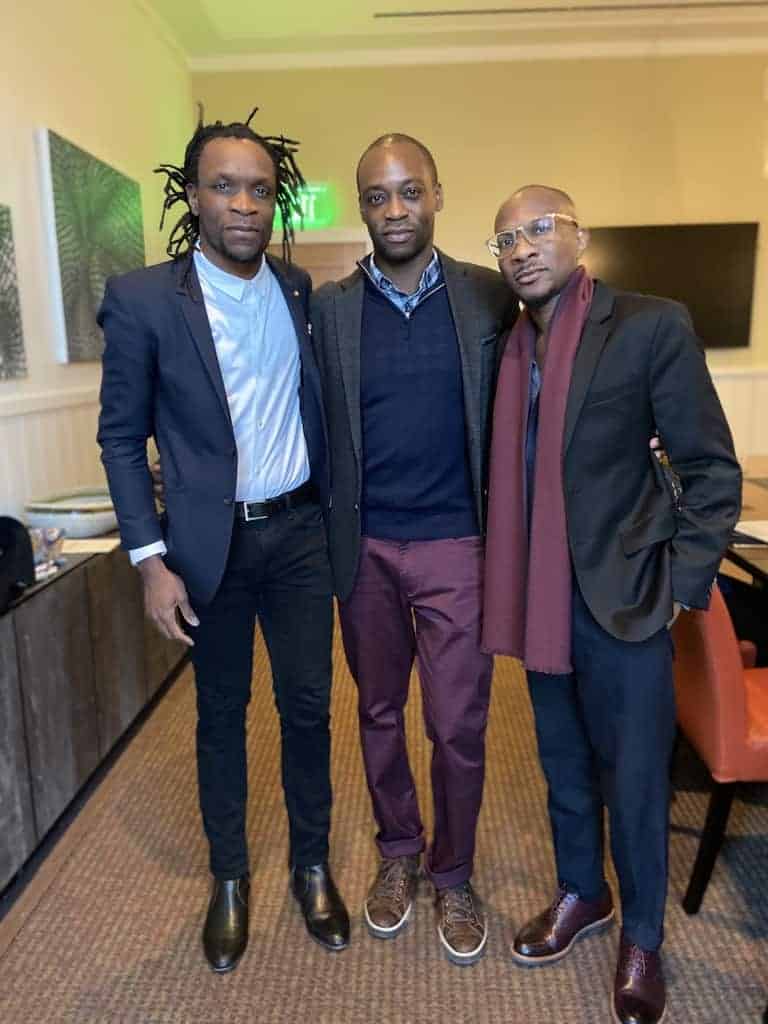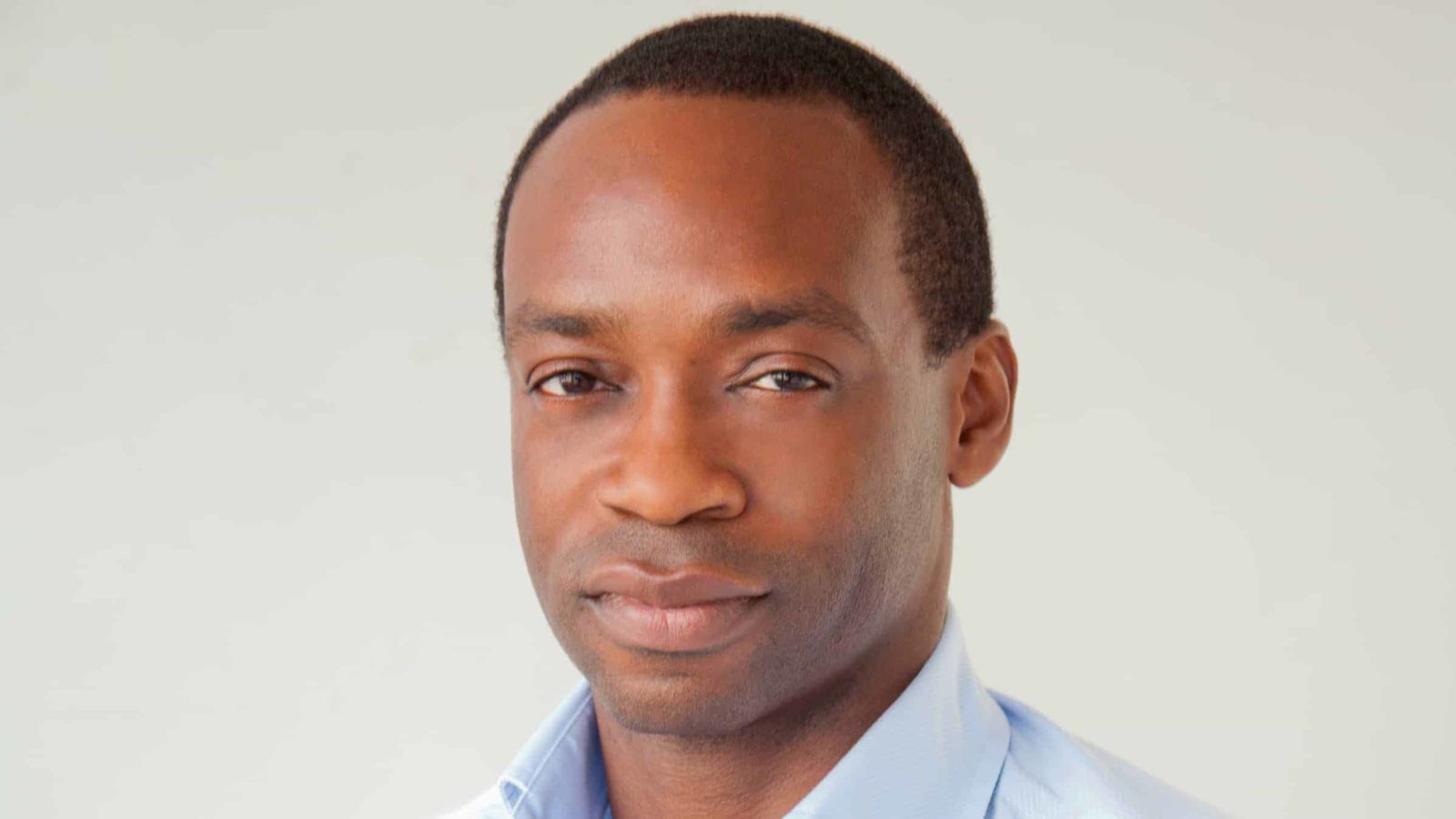At the turning of an election year, when the question who has the right to vote makes daily headlines, what does a government of the people, by the people, and for the people really look like? How would it feel to live in a country where all men, women, all people, all humanity, are created equal?
Colleges, thinkers, artists and writers in the Berkshires are taking on questions like these — what it means to have a democracy, to be a citizen, and to act with civic responsibility — and they are inviting the community to join them.
“A community needs to draw from all of its members, or it isn’t a democracy,” said Neil Roberts, chair and associate professor of Africana Studies and the W. Ford Schumann faculty fellow in Democratic Studies at Williams College.
In times like this, when he sees environmental crises across the world and a fractured body politic in the U.S., he feels the study of democracy is vital — and a poet and multi-faceted thinker may help to deepen it.
Roberts seeks to support programming on campus that explores the idea and practice of democracy, and in 2020-2021 Williams College welcomes nationally award-winning poet, scholar, translator and journalist Rowan Ricardo Phillips as the W. Ford Schumann Distinguished Visiting Professor in Democratic Studies.
Phillips has called his recent work civic poetry, poetry that speaks to national systems that can reshape daily life, poetry written with clear perception, depth and pain. His third collection, Living Weapon, has come out in March 2020. In his writing and in work at Williams, he explores challenges and possibilities in democracy, and he is reaching out to the community in talks and events — even in a pandemic year.
‘Those that wound nations most arise
at home … as though there is no virtue in power
having it and not doing any harm.’ — Rowan Ricardo Phillips
A year ago, just before Covid closed campuses across the country, he opened a conversation with the college and the town. MCLA students were performing The Laramie Project in North Adams, and Bard College at Simon’s Rock was honoring the transformative influence of W.E.B. DuBois. At Williams, Phillips sat down to talk with two internationally recognized and widely influential writers.
He hosted “Silent Poems, Talking Pictures and the Infinite Playlist,” with internationally awardwinning novelist, essayist and photographer and Harvard University professor Teju Cole, and National Book Critics Circle awardwinning poet Ishion Hutchinson, born in Jamaica and a professor at Cornell University.
They came together to talk about literature and its relationship to democratic ideals. They will ask how this country can go forward as a people, and as artists, reckoning with obstacles and possibilities.
“We will meet with the community and explore this through photography, poetry and music,” Phillips said. “What can we do now, when so many questions are rising about democratic values and art’s responsibility? We will play music, pull up images, and take on big ideas in an intimate, rolling-up-your-sleeves way. … Emily Dickinson says I dwell in possibility.”

Internationally acclaimed writers Ishion Hutchinson, Rowan Ricardo Phillips and Teju Cole speak at Williams College. Press photo courtesy of Rowan Ricardo Phillips
In conversations and events like this one, and in the courses he teaches, he explores the challenge of rule by the people — what democracy literally means. And he asks what it means in a country where some people have historically defined others as not “of the people.”
He looks to James Baldwin, who wrote powerfully in the mid-20th century of his sense of himself as a writer, as a man, as a black man, a New Yorker, an ex-pat. In clear, direct and strong terms, Baldwin defined “his relationship to society in a complex social environment that lacked the nuance to understand and fully accept him,” Phillips said. “He had that language before most did, and it still resonates.”
Cole has written about the power of the gaze from his own viewpoint, Phillips says, examining how we look at who is a person and who is free. There is power in seeing and being seen. There is power in saying ‘I am here, and this belongs to me.’
‘What can we do now, when so many questions are rising about democratic values and art’s responsibility? We will play music, pull up images, and take on big ideas in an intimate, rolling-up-your-sleeves way.’ — Rowan Ricardo Phillips
“Ishion Hutchinson, born in Jamaica, can say ‘I am born after thousands of years of poetry and I feel free. This is mine, this position from which I speak.’”
This conversation accompanies a course Phillips was teaching in March 2020 on Democratic Vistas. Through poetry, fiction, non-fiction, photography and film, students will ask each other what a democracy is, what it has been in this country — and what it can be.
As he looked forward to their quest, Phillips recalled Octavia Butler, internationally acclaimed novenist and writer of alternate futures and possible worlds. He is teaching her novels and philosophies in this course, he says. In her novel, Parable of the Sower, in a not-too-distant future, at a time of economic, social and environmental collapse, a young woman is trying to create her own structure for a new society. That is the kind of re-invention he hopes this class will explore.
“If you’re not ossified,” he said, “what will be your founding documents? What are the ideals, the grains of salt we bring to it? What becomes essential in a canon? How do you form it and carry it forward?”
‘If you’re not ossified, what will be your founding documents? What are the ideals, the grains of salt we bring to it? What becomes essential in a canon? How do you form it and carry it forward?’ — Rowan Ricardo Phillips
This kind of ingenuity, and this kind of coming together and talking things out, are vital he says. They are vital to society and community, and they are ultimately an important part of being human.
Beyond the class, he is getting to know the college and the community and the town, the museums and vistas. He has been looking forward to spending time here, he says, since well before the semester opened.
“I met a friend for drinks last night who said ‘I can see you (at the Clark Art Institute) in one of those Adirondack chairs, gazing at the cows and wondering, is this freedom?’ ”
Roberts sees freedom and democracy as connected and changing. “I’ve always made the case,” he says, “that freedom, how we understand it, is constantly in motion.”
He explores their convergence actively in the second Democracy and Freedom conference this spring, as he has in a series of talks on race and democracy and in supporting student activities like the Williams Forum, as students meet to watch debates in the primaries and talk about current events and how to act.
If democracy is a government of the people — then people should have freedom and power to shape their lives and the larger social and political structure that affects them. What does it mean to be a citizen, Roberts asks, and what does it mean when citizenship can be taken away?
A poet can speak directly to questions like this, he says. They can understand events that rock the country, he says, not in political theories, but directly, finding deep and emotional meaning. He feels Phillips offering perspective and astute analysis in a time of crisis, especially in his collection The Ground, written after Sept. 11, 2001; Phillips lives in New York and Barcelona.
“Those that wound nations most arise / at home,” Phillips wrote recently in Who Is Less than a Vapor: “… as though there is no virtue in power, / having it and not doing any harm.”
In a time when the political climate feels sharply divided, a poet may connect with people.
“One thing Rowan Ricardo Phillips is trying to get us to think about,” Roberts says,“is that if we believe in democracy as a political form, if it’s worth fighting for, we shouldn’t take it as a given that we need to take sides.”
‘One thing Rowan Ricardo Phillips is trying to get us to think about is that if we believe in democracy as a political form, if it’s worth fighting for, we shouldn’t take it as a given that we need to take sides.’ — Professor Neil Roberts
Poetry has a power to find common ground, Phillips says, to find a union and communion with readers. And he feels a pull to consider contemporary events, and national currents that shape people’s daily lives, in his own work.
“If I could define civic poetry, I think it would call to me less,” he says. “It’s feeling in the darkness for the tether that connects us and making that a public offering.”
Poetry becomes a place where he and readers can stand together and search for “a sense of the world and what’s vital and important to all of us living in this fraught space,” he says.
Poetry for him feels revealing. The reader overhears a private moment in the poet’s life. “They’re not speaking to you,” he says. “You are a witness to this moment of deep feeling.”
Civic poetry steps into a public place, and in trying times it can give expression to the pain and chaos people live through. So for him, an investment in civic poetry feels natural and inescapable. And vital.
“One thing I love about poetry,” he says, “is that it is a visual art. You can read a sentence, a page, and revisit it, cracking something open and finding new possibilities. Like democracy. We can stare at it and find new possibilities for language, in the way Baldwin does. But hopefully we will be less alone when we do.”

